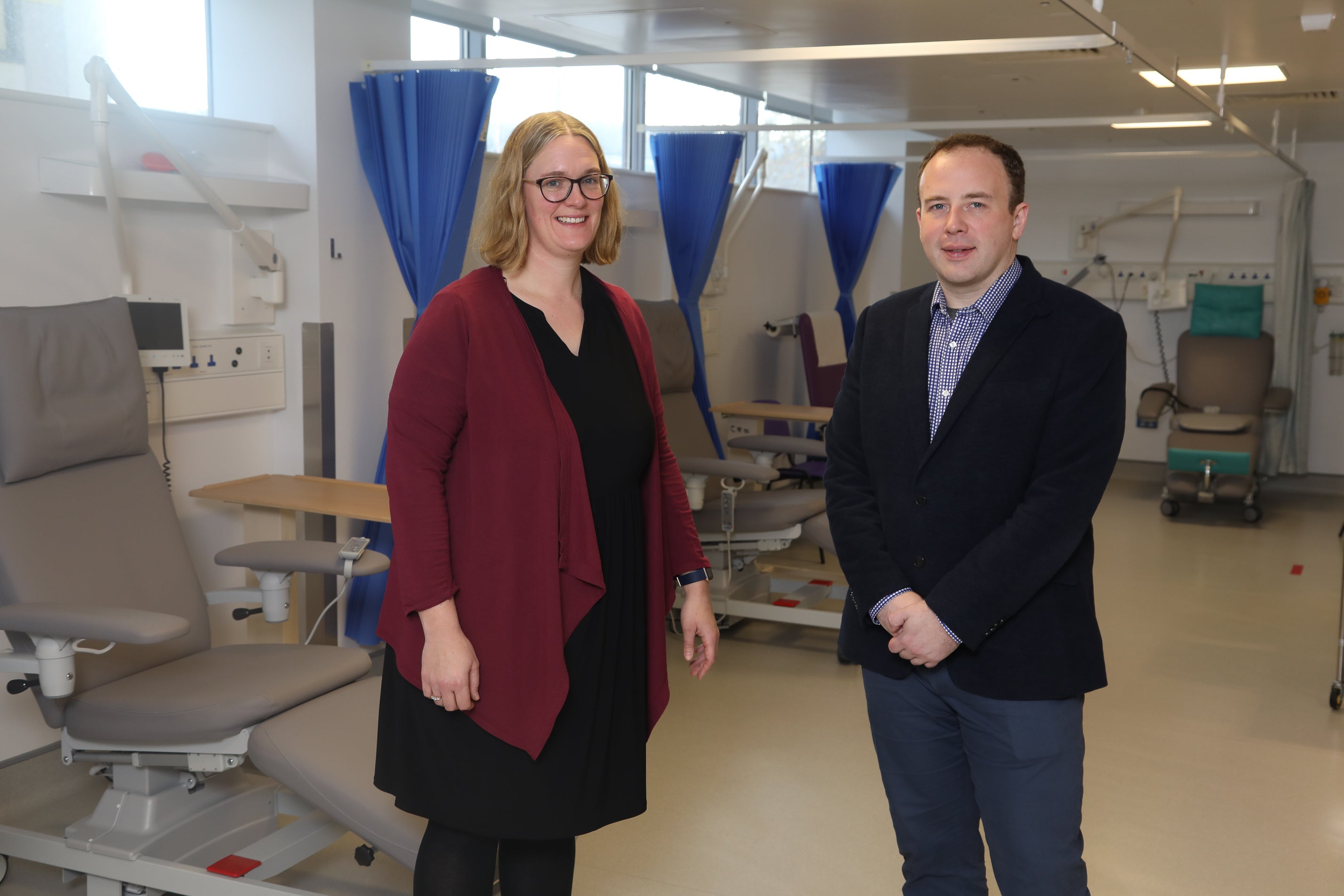Anger, emotional upset and heavy physical exertion identified as stroke triggers
The largest research project of its kind has been co-led by National University of Ireland Galway.

Your support helps us to tell the story
From reproductive rights to climate change to Big Tech, The Independent is on the ground when the story is developing. Whether it's investigating the financials of Elon Musk's pro-Trump PAC or producing our latest documentary, 'The A Word', which shines a light on the American women fighting for reproductive rights, we know how important it is to parse out the facts from the messaging.
At such a critical moment in US history, we need reporters on the ground. Your donation allows us to keep sending journalists to speak to both sides of the story.
The Independent is trusted by Americans across the entire political spectrum. And unlike many other quality news outlets, we choose not to lock Americans out of our reporting and analysis with paywalls. We believe quality journalism should be available to everyone, paid for by those who can afford it.
Your support makes all the difference.A global study into causes of stroke has found that one in 11 survivors experienced a period of anger or upset in the hour leading up to it.
One in 20 patients had engaged in heavy physical exertion.
The suspected triggers have been identified as part of the global Interstroke study – the largest research project of its kind, co-led by National University of Ireland Galway.
It analysed 13,462 cases of acute stroke, involving patients with a range of ethnic backgrounds in 32 countries, including the UK and Ireland.
The research has been published in the European Heart Journal.
Stroke is a leading global cause of death or disability.
There are more than 100,000 strokes in the UK each year, causing 38,000 deaths. About 1.3 million people in the UK are survivors of stroke.
Each year, approximately 7,500 Irish people have a stroke and around 2,000 of these people die.
An estimated 30,000 people in Ireland are living with disabilities as a result of a stroke.
One of the lead researchers was Andrew Smyth, professor of clinical epidemiology at NUI Galway, director of the HRB Clinical Research Facility Galway and a consultant nephrologist at Galway University Hospitals.
Prof Smyth said: “Stroke prevention is a priority for physicians, and despite advances it remains difficult to predict when a stroke will occur.
“Many studies have focused on medium- to long-term exposures, such as hypertension, obesity or smoking. Our study aimed to look at acute exposures that may act as triggers.”
Our research found that anger or emotional upset was linked to an approximately 30% increase in risk of stroke during one hour after an episode – with a greater increase if the patient did not have a history of depression
The research analysed patterns in patients who suffered ischemic stroke – the most common type of stroke, which occurs when a blood clot blocks or narrows an artery leading to the brain, and also intracerebral haemorrhage – which is less common and involves bleeding within the brain tissue itself.
Prof Smyth added: “We looked at two separate triggers.
“Our research found that anger or emotional upset was linked to an approximately 30% increase in risk of stroke during one hour after an episode – with a greater increase if the patient did not have a history of depression.
“The odds were also greater for those with a lower level of education.
“We also found that heavy physical exertion was linked to an approximately 60% increase in risk of intracerebral haemorrhage during the one hour after the episode of heavy exertion.
“There was a greater increase for women, and less risk for those with a normal BMI.
“The study also concluded that there was no increase with exposure to both triggers of anger and heavy physical exertion.”
Co-author of the paper Dr Michelle Canavan, consultant stroke physician at Galway University Hospitals, said: “Our message is for people to practise mental and physical wellness at all ages.
“But it is also important for some people to avoid heavy physical exertion, particularly if they are high-risk of cardiovascular, while also adopting a healthy lifestyle of regular exercise.”
The global Interstroke study was co-led by Martin O’Donnell, professor of neurovascular medicine at NUI Galway and consultant stroke physician at Galway University Hospitals.
“Some of the best ways to prevent stroke are to maintain a healthy lifestyle, treat high blood pressure and not to smoke,” Prof O’Donnell said.
“But our research also shows other events such as an episode of anger or upset or a period of heavy physical exertion independently increase the short-term risk.
“We would emphasise that a brief episode of heavy physical exertion is different to getting regular physical activity, which reduces the long-term risk of stroke.”